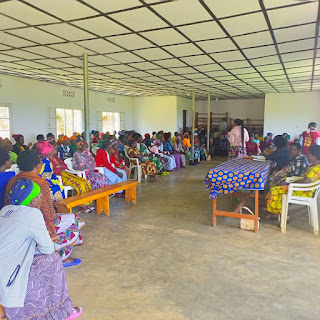Kape Catorce (or KC14 for short) is a women-owned and operated coffee company based in Queens, NY. The name celebrates the Filipino-Colombian heritage of owner-partners Jewel and Jesica Martin-Ballard.
Founded in 2021, KC14 is focused on transparency, traceability, sustainability, women’s empowerment and mindfulness.
“Our sourcing process begins with research,” Jes shares. “We research all our business partners and trace every aspect of the coffee’s journey — from the hands that planted the seeds, cultivated and harvested them to those who export and import the beans. We reach out directly to importers and producers, verifying their ethical practices and ensuring they meet our standards of accountability.”
Jes and Jewel believe that coffee quality is about so much more than beans. “The best coffee is made with fair labor and transparent business practices,” explains Jewel.
It is this belief, and a commitment to diversity and inclusion, that make Jes and Jewel perfect partners for Artisan Coffee Imports.
The partners learned about Ruth Ann Church and Artisan Coffee through a fellow Artisan roaster, Amaris Gutierrez-Ray of Joe Coffee, who also founded Women in Coffee Project.
After delving into Artisan's mission and sampling our green, Jes and Jewel purchased a Rwanda microlot from the all-female Rambagira group of the larger DUKUNDE KAWA cooperative. They also purchased green from Dehab Bitewlign, whose farm is located in the buffer and core zones of the UNESCO Kafa Biosphere Reserve, Ethiopia.
Roasted with Intention
From the first sample roast, Jes and Jewel were inspired, and their goal was to honor the women who produced the beautiful beans. ”Our roasting process is as mindful as our sourcing practices," shared Jes, who roasts for the brand.
"Our roasting process aligns with the values of our company," Jewel added. "We believe the best coffee is ethically sourced and mindfully consumed. We're committed to honoring the work, talent and creativity of the people involved in every step of coffee production: from soil to cup.”
The roasting process for each coffee reflect that mindfulness:
- Rambagirakawa: "We did four different sample roasts and fell in love with the subtle peach black tea notes we were experiencing in a few cups. We knew we wanted to accentuate those notes. For our final roast, we took our gas up to 85, did two big jumps and then started to to taper down by fives. We finished at 8:37, which brought out the lovely notes of peach and black tea that we enjoy."
- Dehab's Diamond: "We approached this green very differently. It was a long, slow roast. Dehab's Diamond produced such a lovely clean cup, which is unusual for a natural. We fell in love with the strawberry and blueberry notes. Ethiopian coffees are so honest with their fruits, and we wanted to highlight those fruit flavors with a slow, gentle roast that honored the sweet berry flavors.”
Once roasted, the beans are packaged in bags featuring a short producer story and information on bean variety, origin, elevation, processing and tasting notes. “We help convey the coffee producers vision for their product,” Jewel shares. “We want consumers to understand that they are participating in an ethical sustainable supply chain.”
.jpeg)





